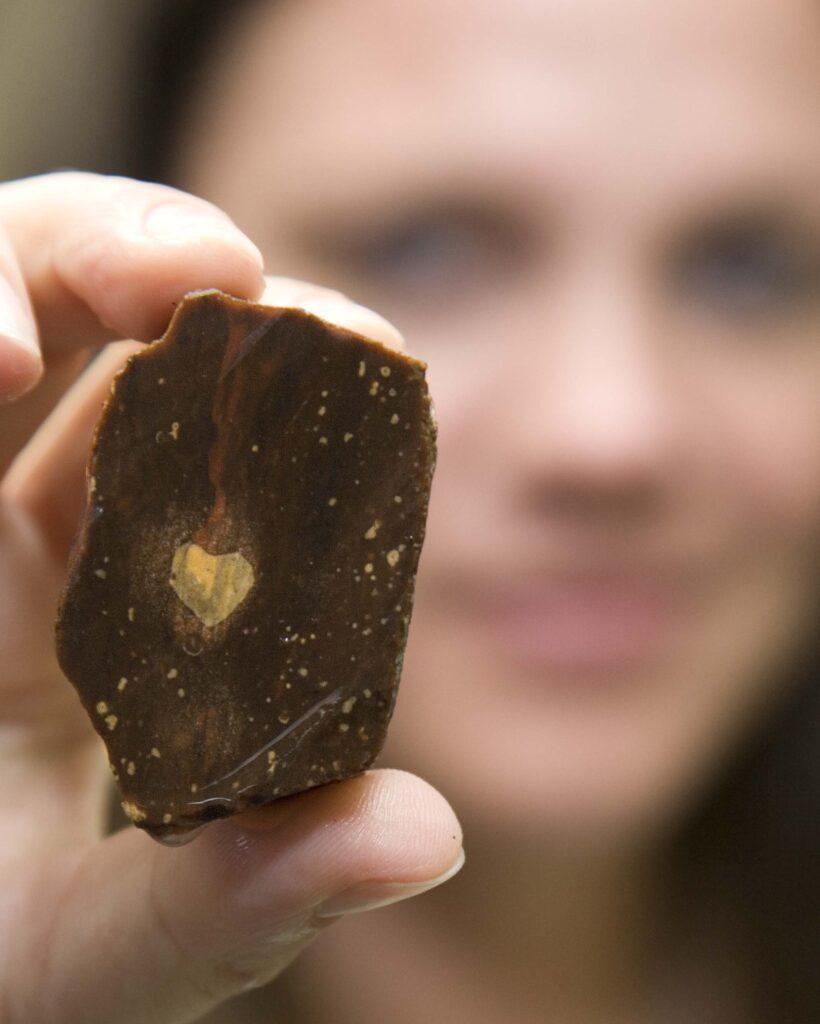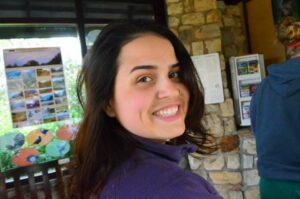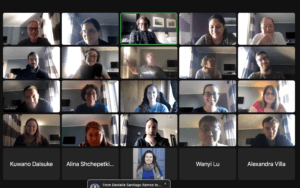
All we want are some rocks
The value of rocks.
A poem by Tessa Peixoto
What is a rock,
If not shelter from a predator,
Or weather.
What is a rock
If not a solid place to attach one’s holdfast.
What is a rock,
If not a used to be skipped across a calm surface of water
A rock is just that.
A shelter.
An anchor.
A form of entertainment.
A rock is also a storyteller.
Its parts,
If you pay attention long enough are called elements.
Its parts,
are the keys to understanding history.
History that tells of death, change, and renewal.
So…
What is a rock,
If not the burial grounds of fallen foraminifera.
What is a rock,
If not filled with crystalline rivers of minerals.
What is a rock,
If not the sedimentary pages of a changing ocean.
My name is Tessa Peixoto and I am your onboard outreach officer for this expedition 393. Outreach is the field of work that aims to educate and make information accessible to the public in ways that inspire curiosity, inform, and engage.

The crew of expedition 393 are about to end covid isolation after many long journeys from our homes. Some of us had trips that worked out and others that did not. For example, some of us spent over 30 hours traveling due to bad weather and missed flights. Nevertheless, the crew of Expedition 393 all share the common goal of understanding the Earth’s story. They plan on doing research based on looking at sediment and rocks. Rocks at the bottom of the ocean.
– Some of them are petrologists. A scientist that studies the structure, composition and formation of rocks.
– Some of them are paleomagnetists. A scientist that studies the magnetic properties of rocks that were and are affected by the magnetic field of the Earth.
– Some of them are microbiologists. A scientist that studies organisms so small that we can’t see them without a microscope. – Some of them are inorganic chemists. A scientist that studies the formation, composition, and properties of compounds that are not organic.
– Some of them are sedimentologists. A scientist that studies the properties, chemical and physical, of sedimentary rock.
What is fascinating is that each of the scientists have knowledge that goes beyond the discipline they were brought onboard as experts in, which allows for increased opportunities for research collaboration, teamwork and sharing of knowledge. And some great conversations! They all come together from different corners of the world with questions about how the Earth and oceans have changed in the past, how the ocean has affected the formation of the crust, and how that formation and change has affected the microbial diversity at the bottom of the sea.
Even after our long travels, we have had to stay in our hotel room for 7 days to make sure we are not positive for covid. Should everything go right we will set sail on June 11th for our first site (or June 12th if we need to use some wiggle room). But just because we are in the hotel, isolated from one another to ensure our safety, doesn’t mean we are not working! We meet over zoom (see the picture below) at various times of day to discuss our plans for the trip, to prepare our methods for our data collection, and to inform each other of what to expect of life at sea. For example, chocolate lava cake is something to look forward to on most weekends as a treat throughout the expedition (check out Exp. 390’s ranking of best deserts on the ship).

I encourage you to follow our journey across the South Atlantic on social media and on this blog where we will share some of the stories that get written as we examine the rocks. I will also introduce you to some of the scientists and find out what excites them about science! You can see one of the most recent social media posts we did that talks about what the scientists are most excited about (hint: it is about rocks).
However, your involvement does not end there. I’ll be on board with the exciting task to provide free virtual tours onboard, daily, to anyone in the world who is interested. Please check out this page for an up to date calendar of what days are available for the virtual tours, aka Ship to shores.
See you soon!
Looking forward to reports. Interested in the composition of cores.